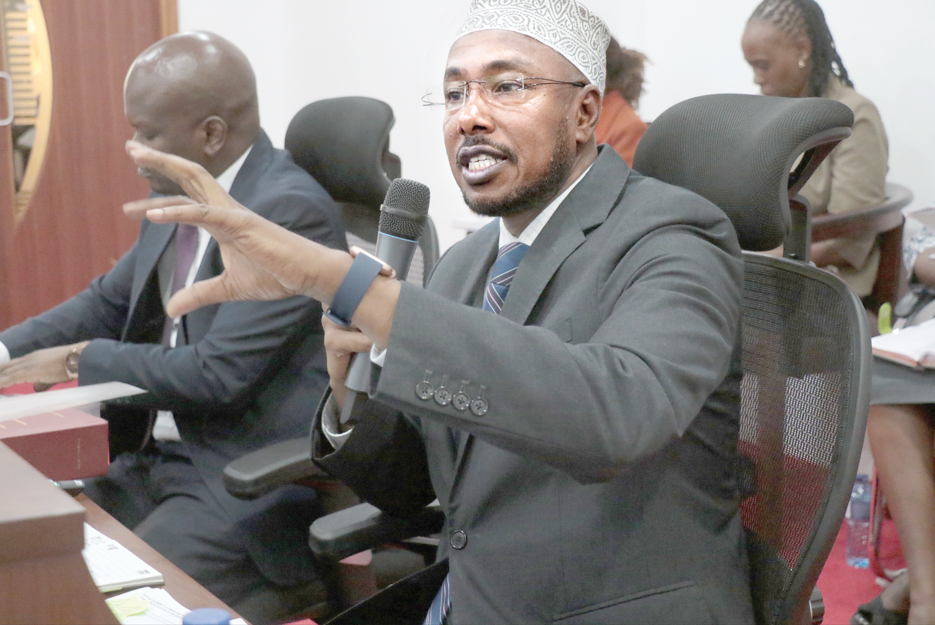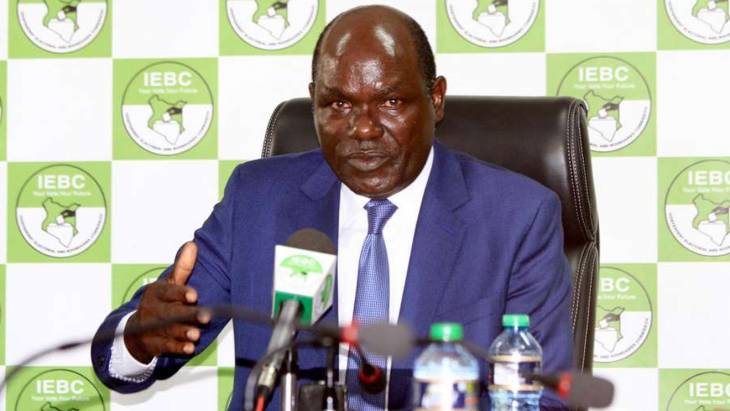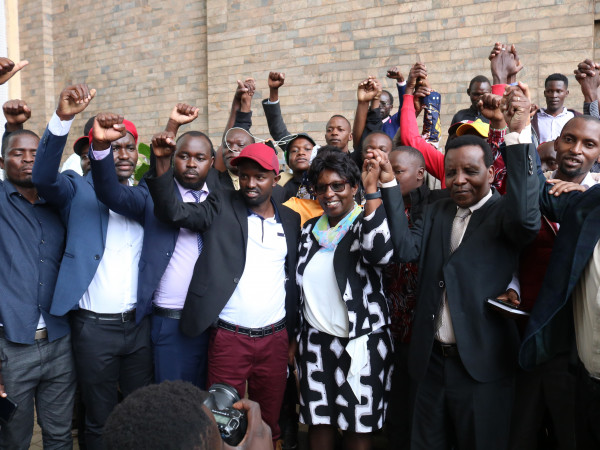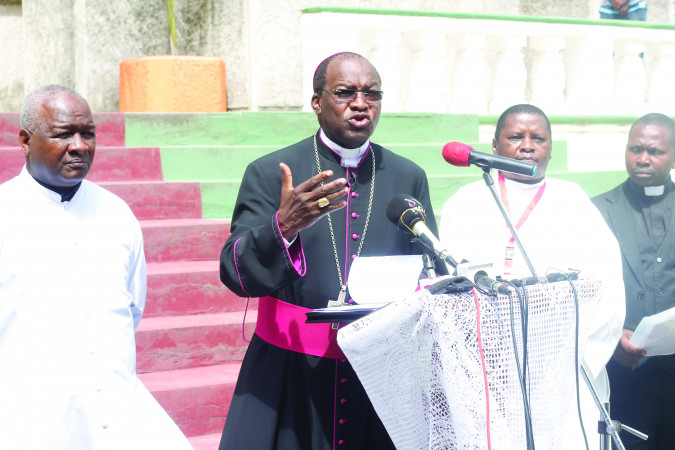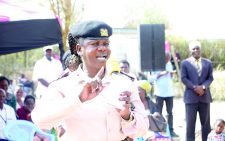MCAs protest elections rule on varsity degrees
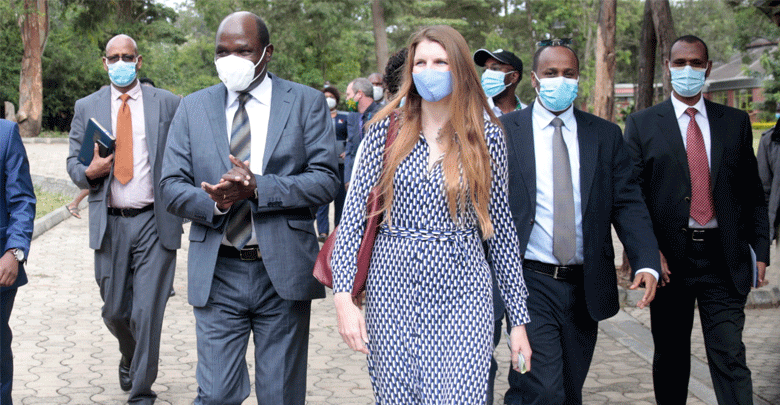
There was uproar among politicians after a reminder by the Independent Electoral and Boundaries Commission (IEBC) that anyone wishing to vie for any of the six elective positions in the August 2022 polls must have a university degree.
Commission chair Wafula Chebukati reminded the aspirants that the Elections Act section 22 mandates all candidates to have a minimum of a university degree from a recognised university to vie for the 2022 elections.
The section states that a person may be nominated as a candidate for an election only if that individual holds, in the case of a Member of Parliament, a degree from a university recognised in Kenya.
In the case of a Member of a County Assembly, a degree from a university recognised in Kenya.
“This section shall come into force and shall apply to qualifications for candidates in the General Election to be held after the 2017 polls,” the Act.
Yesterday, Chebukati explained that the commission is developing a Memorandum of Understanding with the Kenya National Qualifications Authority (KNQA) and the Commission for University Education (CUE) on the verification of academic papers, which will be presented by the candidates for the polls.
“IEBC is a creature of the law and we shall abide by the provisions of the law. Section 22 of the Elections Act mandates all candidates in 2022 to have a university degree qualification.
We are in a country where there are so many fake degree certificates. All candidates must have degree academic qualifications,” said Chebukati.
His statement irked County Assemblies Forum (CAF)- the caucus that brings together all the 47 county assemblies.
CAF has now vowed to challenge the provision in court, saying it is unconstitutional.
The forum’s chair Ndegwa Wahome said they have already filed a petition at the Constitutional Court to challenge the provision.
Wahome said the 2019 population census shows Kenyans who have university degree qualifications are a paltry 3.5 per cent of the 47 million Kenyans.
“Article One of the Constitution states the sovereign power belongs to the people and it is the people who should choose who their leaders should be irrespective of their academic qualification.
We will challenge this provision to the highest court in the land,” said Wahome.
He went on: “We believe the provision of the Elections Act is unconstitutional. It is against the will and sovereignty of the people who, constitutionally, are the ones who elect leaders.”
According to Wahome, CAF filed the petition last week under certificate of urgency.
“There is no study about academic qualifications about leaders. There is no empirical study to show that those with university degrees are better leaders than those without.
There was no civic education nor public participation about this law,” said Wahome.
Good leaders
Muranga Senator Irungu Kangata supported CAF’s position, arguing that there were many good leaders in the world without degrees, adding that Kenya has only about 1.5 million graduates.
“Power in assemblies is exercised in a collegiate manner unlike in Executive where it is singularly.
In collegiate institutions, one strives for diversity. It would be unfair for uneducated persons to be blocked from representation in Assemblies. We shall miss talent,” said Kangata.
Senate Minority Whip Mutula Kilonzo Jr said the law was passed in 2016 but suspended to 2022 and that the two Houses saw no problem with the said proposal.
“If there is an issue, they should petition Parliament. The said provision is not exclusive to them. It affects parliamentarians too.
I suspect all these issues will come up as we legislate on electoral reform,” said Kilonzo Jr. Former National Assembly Majority Leader Aden Duale (Garissa Town) said as it is, the law requires all those wishing to vie for various elective seats to have the minimum university degree qualification.
“Unless amended by the House, the law stands that way. Kenyans should go to school. Leadership is about understanding your role as an elected person.
We need people who are literate to analyse budgets, people who are ready to bring well-researched bills, statements and to represent your people.
It beats the whole purpose of having people in leadership who are illiterate,” said Duale.
Duale further argued that lack of university education qualification has seen a number of elected leaders in the House unable to even utter a word and do not attend committee meetings.
“They have only two options. They should either get degrees, which is now late or step aside or allow Kenyans with relevant academic qualifications to represent their people.
We have MCAs who do not even understand audit reports. I will oppose any amendment to this provision,” said Duale.
Amani National Congress lawmaker Godfrey Osotsi also supported Duale’s sentiments, saying the law is clear that candidates for the 2022 polls must have valid degrees to vie.
“Unless the law changes through amendments to the Act, candidates who do not have degrees will not be cleared by IEBC.
This law was supposed to be effective in 2013 but the sunset clause was inserted to give people enough time to get the papers.
I think 10 years is sufficient and you cannot argue that it is discriminatory law. What about the President, Deputy President and governors who must have degrees?
Can we argue that the Constitution is unconstitutional because it does not explicitly provide the same to other positions?” posed Osotsi.
Osotsi also argued that MPs and Ward Reps oversight the national and county government respectively and hence they must equally have degrees to match the people they oversight.
However, Nyeri Town MP Ngunjiri Wambugu charged that it is hard to make university education criteria for leadership.
“Until we have a situation where university education is available for all Kenyans equally, it becomes hard to make university education a criterion for leadership in Kenya,” said Ngunjiri.
New voters
The reminder about the university degree qualification came even as the commission said it has registered 149,600 new voters since the 2017 General Election, bringing the total number of eligible voters to 19,678,885.
Although the commission plans to register at least four million eligible voters, who have since been captured by the National Registration Bureau, it will clean the register six months before the polls.
“We have only registered about 149,600 new voters. More than four million eligible Kenyans have not registered as voters. We will clean the voter register six months to the election to remove all those who have passed on since the 2017 polls,” said Chebukati.
Speaking during the launch of the Commission’s Voter Education Week, Chebukati called on all Kenyans who are not registered to avail themselves for registration ahead of next year’s elections.
According to Chebukati, the commission is set to conduct voter education in all the 47 counties and 290 constituencies countrywide to create awareness on the commission’s mandate.
At the same time, British High Commissioner to Kenya Jane Marriot said the UK would work with the electoral agency in providing technical support ahead of next year’s elections.
Marriot said the UK was committed to support IEBC to ensure free, fair and credible elections in 2022 to avoid violence like it happened in 2007-08.
